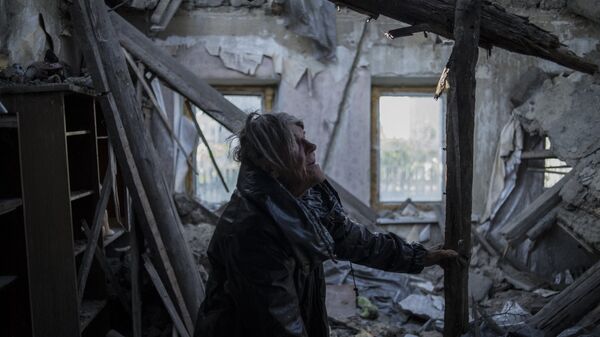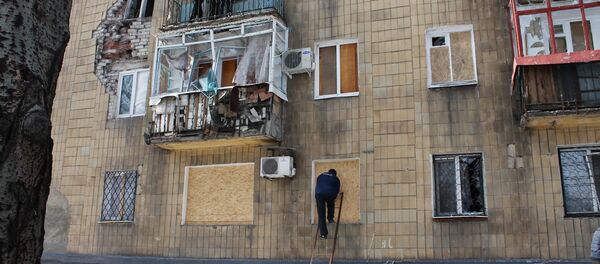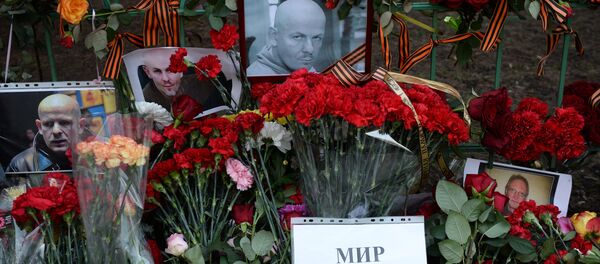The Russian Federation's Investigative Committee is not taking the assault lying down — in a statement, the body said it will attempt to prosecute the perpetrators with using banned methods and means of warfare, under Part 1 st.356 of the Russian Criminal Code.
In the attack, Ukrainian troops carried out artillery strikes on civilian areas in Staromykhailivka and between June 23 — June 28. The shelling killed local residents, injured children, and damaged several residential houses.
Evidently, the government of Ukraine continues to regard the refusal of the region's population to recognize its legitimacy, and desire to create their own administrative-territorial formations, as crimes punishable by death.
The attacks were in direct contravention of the Mink Agreements — protocols that demand the termination of battle in south-east Ukraine — and the Geneva Convention's rules on the Protection of Civilian Persons in Time of War.
However, while such news is undoubtedly shocking to the outside world, residents are by 2017 used to frequent ceasefire violations by Ukrainian forces — forces which have enjoyed total impunity for innumerable breaches of international humanitarian law, including war crimes, such as the use of torture.
In February 2016, the State Investigation Bureau was formally created to investigate crimes committed by law enforcement officials and the military, but it has focused primarily on attempting to prosecute members of President Viktor Yanukovych's administration.
As of June 2017, no arrests or prosecutions have been successfully made.
The UN Subcommittee on Prevention of Torture (SPT) suspended its visit to Ukraine in May 2016, after the Security Service of Ukraine (SBU) denied it access to its facilities in eastern Ukraine where secret prisoners — many of them innocent civilians — are held and allegedly subjected to torture and other ill-treatment. The SPT was only allowed to complete its visit in September — and the government blocked the publication of its report.
Ukraine conducted unlawful detention of individuals perceived to support the other side, including for use in prisoner exchanges. The long-awaited State Investigation Bureau, intended to investigate violations by the military and law enforcement officials, was formally established but not operational by the end of the year.
Most notably, in April 2015, Oles Buzina was shot dead by two masked gunmen — and in July 2016, journalist Pavel Sheremet, an ethnic Belarusian and Russian citizen, was killed in a giant car bomb attack. In both cases, the perpetrators are yet to be identified, although there are suggestions of state involvement, or sponsorship.
Such developments have perhaps unsurprisingly led some observers to label Kiev a "mass grave" for journalists.
Others have been slightly luckier. The TV channel Inter has repeatedly been threatened with closure by the Ukrainian Interior Minister, and on 4 September 2016, 15 men attempted forcefully, but unsuccessfully, to enter the channel's premises. They then threw petrol bombs into the building.
Popular TV presenter Savik Shuster had his work permit annulled by the Ukrainian Migration Service, in violation of existing procedure, and criminal proceedings were launched against his TV channel 3STV. In December 2016, Shuster closed the channel due to fears of further reprisal.
Ruslan Kotsaba, a freelance journalist, was sentenced to three-and-a-half years in jail in May 2016 for "obstructing legitimate activities of the Ukrainian Armed Forces in a special period" — a legalistic euphemism for posting a video on YouTube demanding an immediate end to Ukrainian military activities in Donbass and called on Ukrainian men to resist conscription.




